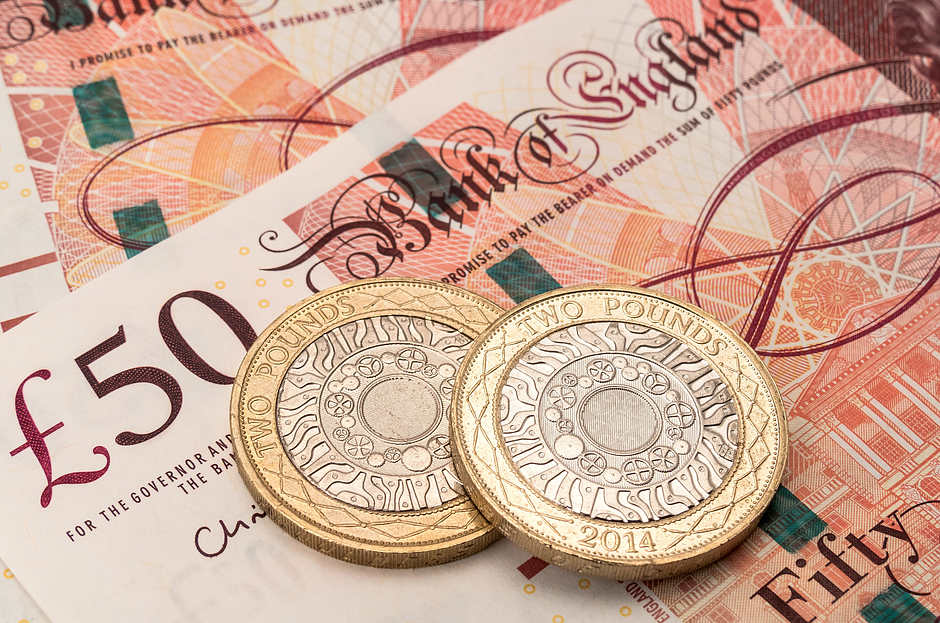The GBP in the rein of King Charles

The death of Queen Elizabeth II on Sept. 8 beaconed a new era for the UK, coming on the heels of Elizabeth Truss taking office as prime minister and heralding the proclamation of King Charles as the new monarch.
These changes could be overwhelming for a country that has known only one monarch for 70 years. Even more daunting is that these changes happened amid economic uncertainties, the energy problems affecting Europe and before full recovery from the COVID-19 pandemic has been truly achieved.
The British pound was modestly lower compared with other major currencies a day after the Queen's passing. However, the sterling had been relatively weak even after the Truss was named prime minister. On Sept. 7, it dropped to a 37-year low of $1.1469.
However, the pound has found some buyers since the seventh, bouncing from this low and climbing back to its last consolidation zone just above 1.7000. This is perhaps an odd bout of bullishness in the lead up to the release of the UK’s August inflation data due on Wednesday.
GBP/USD 1D, with UK Inflation Rate YoY
Days before the Queen's death, Goldman Sachs warned that the UK could fall into recession in the fourth quarter of 2022, echoing earlier forecasts from Bank of England. Considering these bearish sentiments, all eyes are on how Truss and the new King will navigate the country of four nations through these murky economic waters.
Long lived the Queen
Queen Elizabeth was 96 years old when she died. She was the UK's longest-reigning monarch and lived through the aftermath of WWII, the winding down of Britain’s vast empire, the 2016 Brexit vote and a global pandemic, among other major events.
Following her death, her eldest son Charles takes the throne and the crown amid ongoing criticisms that the monarchy is outdated and absorbing public finances, CNBC reported. Considering the country's current financial situation, it is not too far off to assume that these disapprovals will only intensify.
King Charles is already one of the richest people in the world. Being the monarch, he will also be responsible to the Crown Estate, which comprises 15.6 billion pounds ($18.25 billion) of property, according to Financial Times senior business writer, Andrew Hill.
While the Royal Family may not have a direct hand at UK's financial policies, it falls on the new King the responsibility to rally public sentiment, especially during a period of crisis.
Andrew Roberts, a historian and professor at King's College London, was cited by CNBC as saying that the new monarch intends to "slim down the Royal Family" to show solidarity with the rest of the country during a "massive cost-of-living crisis."
Trusting Liz Truss
Amid the troubling times in the UK, perhaps harder work is demanded more from new Prime Minister Truss than any other person in the country.
In her last public engagement, the Queen met with Truss two days before her death to ask the latter to form a new government.
Truss immediately jumped into action, unveiling a 40 billion-pound energy support package for homes and businesses in the UK amid soaring electricity and gas prices, exacerbated by the reduction of supply from Russia after it faced sanctions over its military action against Ukraine. The plan includes a 2,500 pound cap on household energy bills for 2023.
Truss took office also after the annual inflation rate in the UK reached 10.1% in July, marking a record high since February 1982 and a peak among G-7 nations. Her election victory also comes on the back on the biggest rate hike in the country in 27 years, which is also expected to further grow once the Bank of England resumes its monetary meeting following a period of mourning for the Queen.
Earlier unveiled economic plans for the Truss government also includes an emergency budget targeted at reversing the recent increase in national insurance contributions, as well as the removal of the corporation tax hike scheduled for April 2023.
Author

Mark O’Donnell
Blackbull Markets Limited
Mark O’Donnell is a Research Analyst with BlackBull Markets in Auckland, New Zealand.


















